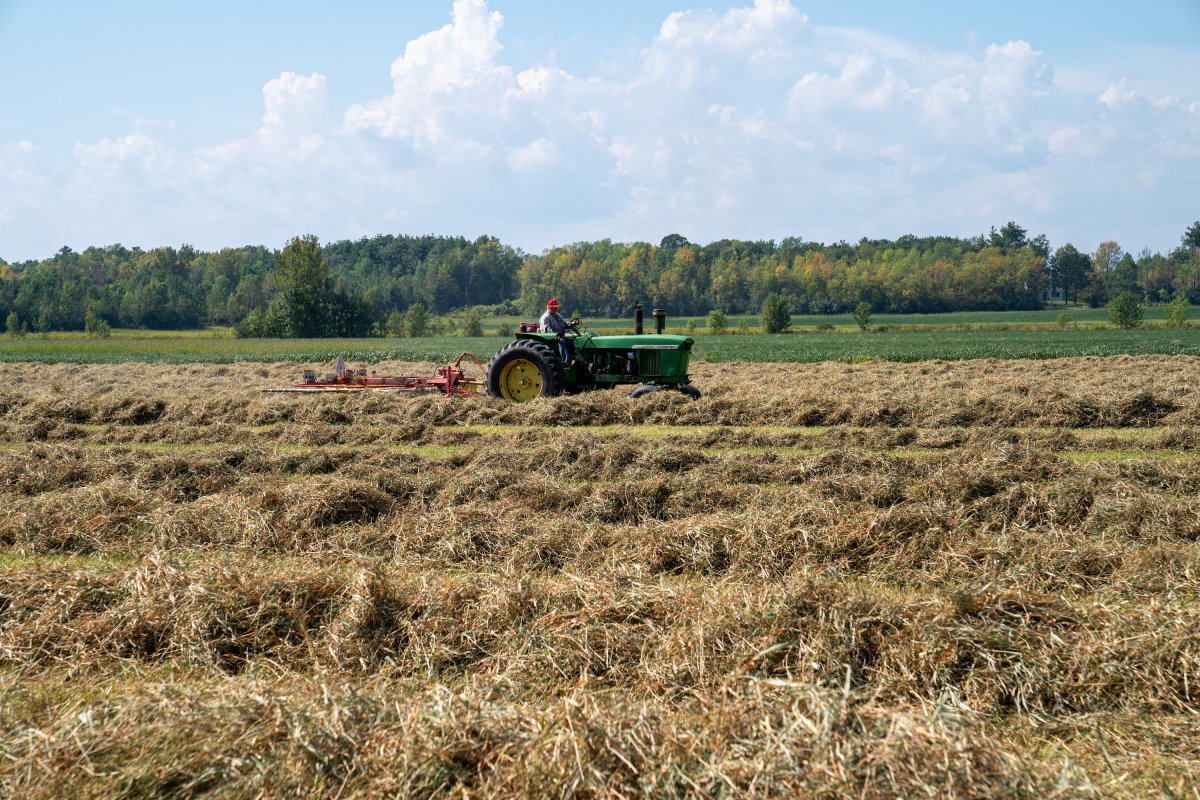Rural Americans don't care about the environment. They're uneducated climate deniers. They're the people destroying the environment—the farmers, the miners, the foresters, and the ranchers. If we're serious about solving climate change, they will need to find new jobs. We have no choice but to leave them behind.
Or so we're told.
As a native Wisconsinite, I know firsthand just how misunderstood rural America feels when it comes to climate change. For decades, environmental leaders have talked down to communities like mine, shaming and blaming the very people they depend upon for food, energy, manufacturing, and so much more.
Contrary to what we hear, rural America isn't in denial of climate change and other critical environmental issues. Instead, its hard-working people feel left behind by policymakers. They're fearful of having their livelihoods and communities ripped away from them. They're tired of being excluded from the dialogue—and being told they're the enemy. Most of all, they feel their priorities have not been taken into account. While trying to put food on their tables (and receiving broadband internet 20 years later than most of the country), they've been handed unrealistic demands, regulations, and mandates from leaders thousands of miles away. While they risk their lives to power and feed us, they are vilified.
The truth is that rural America is deeply connected to nature, far more so than their urban and suburban counterparts. Farmers, ranchers, and foresters have a personal stake in environmental protection because their livelihoods literally depend on it. With nature as their backyard, it's also their means to relax and connect with their community. Over the past seven years, I visited hundreds of rural communities to find climate solutions. It became crystal clear that they are the most critical partner in our fight against climate change.

In the small town of Blanding, Utah, a uranium mine and mineral processing center (the only one remaining in the United States) has become the lifeblood of the local community. In West Virginia, coal plants are being converted to nuclear and other renewable facilities to support the workforce. In coastal states like Louisiana, duck hunters have partnered with environmental nonprofits to protect the coastline against the impact of climate change, sequester more carbon, and restore critical habitats for wildlife. In agriculture-heavy states like Wisconsin and Iowa, farmers are innovatively turning cow manure into renewable natural gas, resulting in an extra income stream for their families.
Energy, food, and resource demands continue to increase. The hands-on experience of rural communities will be an essential part of meeting them and securing our pro-climate future. The solution isn't asking these communities to stop, but rather partnering with them to collaboratively pioneer cleaner and more efficient methods.
Recently, this recognition has led to action. The Inflation Reduction Act is expected to bring 67,000 new jobs and tens of billions of dollars in new investment to rural areas. Yet these communities have been hesitant to embrace the funding. That's largely because they're skeptical of the sudden outreach from the very people who, for decades, ignored and maligned them. Rural communities might ultimately end up benefiting immensely, but they didn't initially have a place at the table. That's the problem.
By way of comparison, the Growing Climate Solutions Act, which incentivizes farmers, ranchers, and foresters to reduce emissions, passed 92-8 in the U.S. Senate and enjoyed bipartisan support. Why? Rural communities, legislators, and organizations partnered on the legislation from the outset.
To solve climate change and forge a sustainable future, we need to bridge our nation's geographical divide, and that starts by making the 60 million Americans who live and work in rural communities a key voice in the discussion. It will take time to earn their trust, but it's absolutely time worth spending. Understanding their concerns and aspirations and harnessing their unique capabilities and knowledge will yield rich, multigenerational rewards for the entire country.
Benji Backer is founder and executive chairman of the American Conservation Coalition, and author of The Conservative Environmentalist: Common Sense Solutions for a Sustainable Future (Sentinel, April 16). Follow: @BenjiBacker
The views expressed in this article are the writer's own.
Uncommon Knowledge
Newsweek is committed to challenging conventional wisdom and finding connections in the search for common ground.
Newsweek is committed to challenging conventional wisdom and finding connections in the search for common ground.
About the writer
To read how Newsweek uses AI as a newsroom tool, Click here.








